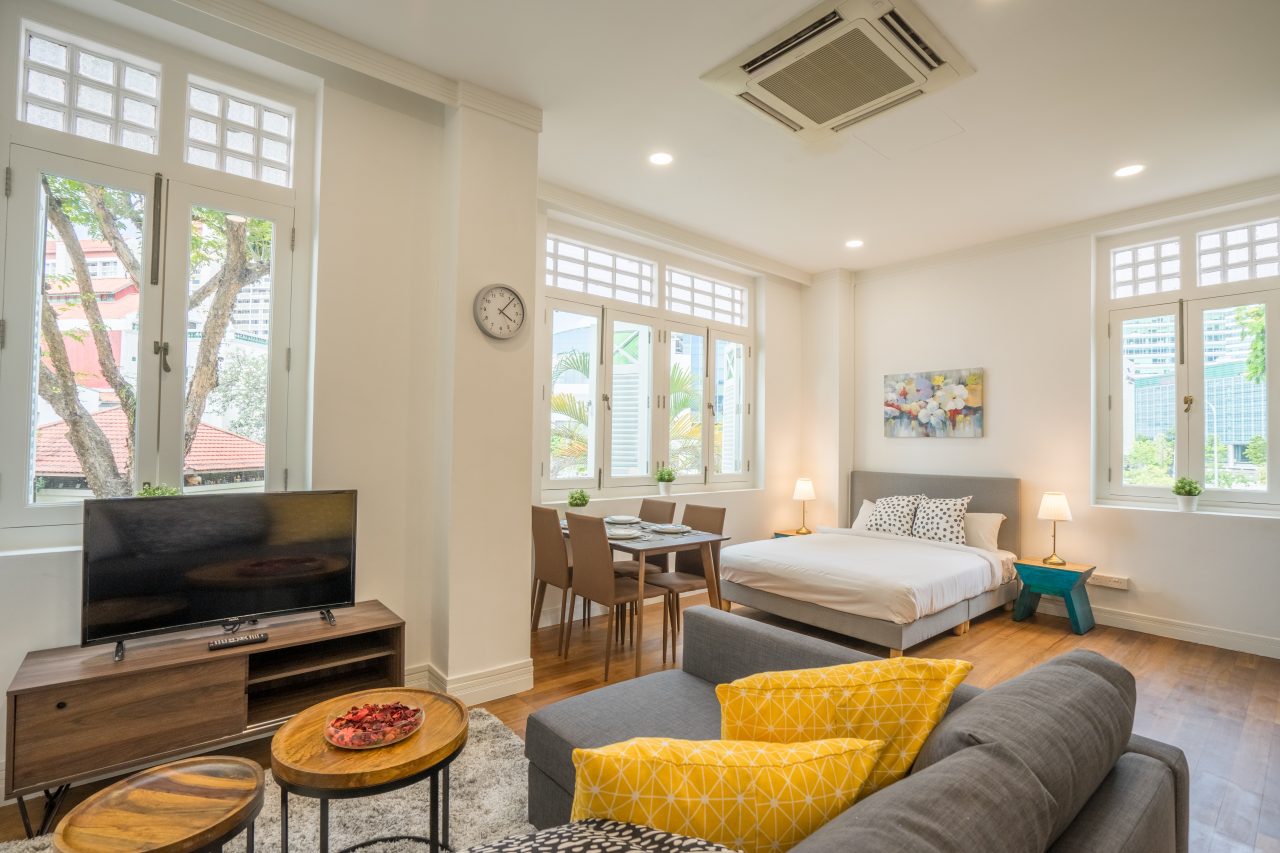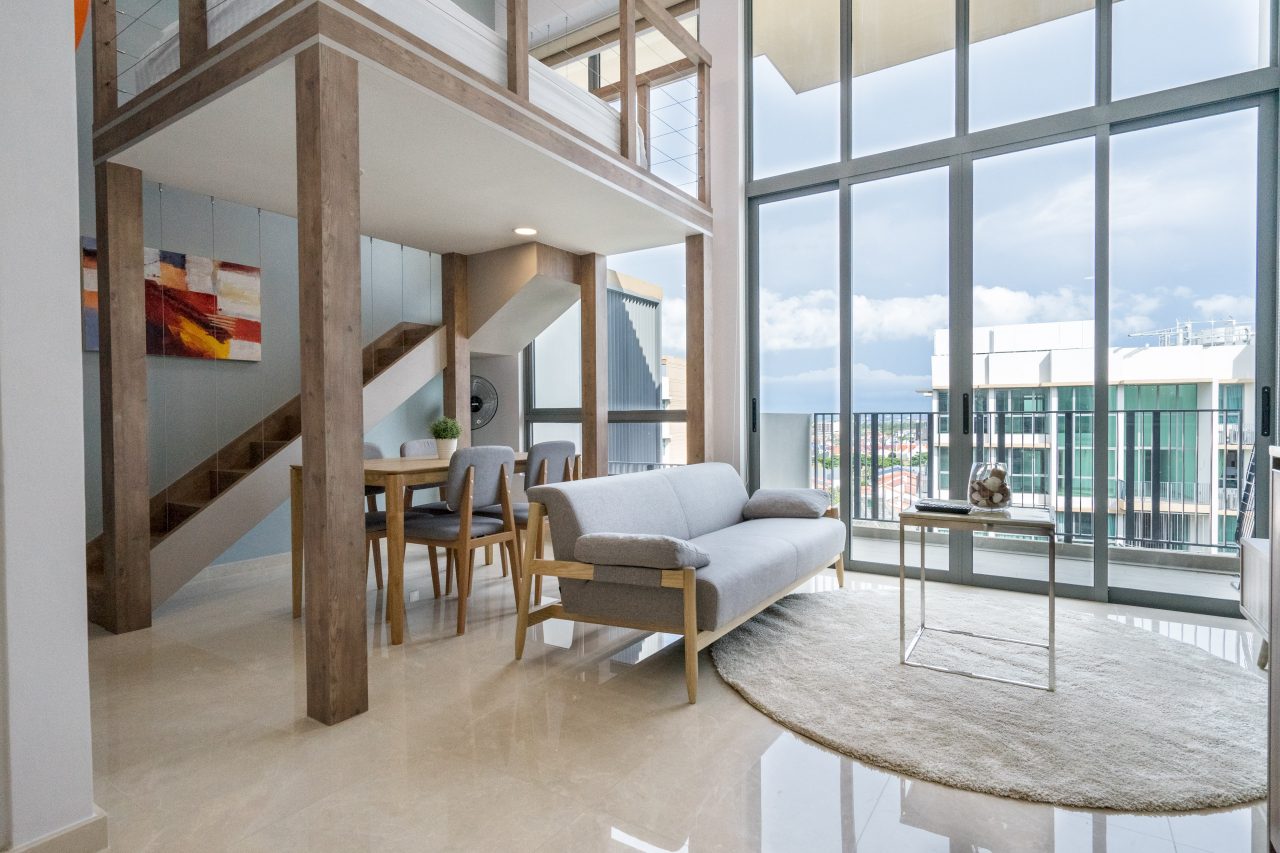6 Truths about long-term rentals that hotels don’t want you to know
Many business travellers instantly think of hotels when considering accommodation options. Hotels are an excellent choice to stay for a few days, but if you are in town for a more extended period, long-term accommodations such as serviced apartments and co-living spaces could be a better alternative.
The type of accommodation you choose can make a big difference to your overall experience living in Singapore, so it’s crucial to weigh the benefits and pick wisely!
1. Pricing

Whether you have a self-imposed budget or a fixed allowance from your company, filtering potential accommodation by price would likely be your first step when looking for a new place to call home. With the same budget, you will find that you get more bang for your buck by renting long-term accommodation instead of staying in hotels if you are visiting for 3 months or longer.
Hotel room rates are calculated on a day-by-day basis. Coupled with 7% hotel tax, the longer you stay in a hotel, the more expensive your bill is going to be. On the other hand, long-term serviced apartments and co-living spaces charge weekly or monthly for term stays. For the same period, you could save an estimated 30% by opting for a term lease over a hotel! For cost-conscious individuals and companies, it is the obvious choice, really.
Don’t worry; paying less does not mean that you have to forfeit the perks and luxuries of living in a hotel. Read on to realise that long-term rentals generally offer similar facilities and services as hotels, if not more, but without the excessive charges! (If you are planning on a mid-long term business trip, here’s a list of necessities you need!)
2. Space

With an average of 30% to 50% more space as compared to standard hotel rooms, serviced apartments and co-living homes are a lot roomier and allow you to live more comfortably. You can stretch out and truly unwind after a day of hard work without feeling like you’re suffocating in a tiny space.
On top of that, serviced apartments take it up a notch by offering exclusive private living spaces with separate bedrooms, living rooms, kitchens and bathrooms, making your everyday stay even more pleasant and liveable. The same goes for co-living spaces, although the kitchen and bathroom could be shared.
This compartmentalisation makes a big difference to one’s psychology and quality of life. Moving from one area to another that serves a different purpose allows you to shift your mood and focus on what you are doing, whether it is drafting an email at the work table, relaxing and watching TV in the living room or taking a nap in the bedroom. Gone are the days where your bed is also your dinner table; leaving you in a blanket of Oreo crumbs each morning.
Of course, hotels avail rooms with generous space and a breathable layout, but they come at a hefty premium. With serviced residences, you can enjoy the sweet suite life without breaking the bank.
3. Living amenities and facilities

Unlike hotels, which target short-term travellers, long-term accommodations are designed for people who will be living in a place for a significant period. As such, not only are the living spaces well-configured, the rooms are also fully furnished with amenities that you would require daily.
You can expect a fully equipped kitchen fitted with cooking essentials like pots and pans as well as cutleries and utensils. A full-sized kitchen also means that there are a standard-sized refrigerator and adequate storage space for your groceries and snacks. These elements come in really handy for the health and cost-conscious who prefer to cook at home rather than eat out. As well as for those who wish to whip up a good homecooked meal they miss from home.
Most apartments are also furnished with in-unit washing machines and dryers (like this serviced apartment). You can now wash your clothes as and when you like to, without having to pay add-on charges for simple laundry services.
Talk about a true home away from home!
4. Living flexibility and versatility

Even with the aforementioned in-room facilities, hassle-free services common to hotels such as housekeeping, laundry, 24/7 concierge and Wi-Fi connectivity are still made available at serviced residences, on top of facilities like swimming pool and fitness centre. You can afford a more flexible lifestyle without compromising on the perks of a hotel stay. It’s the best of both worlds.
For instance, instead of daily housekeeping, you could make weekly cleaning arrangements or call for on-demand service from the concierge as needed. With a place to call your own in a long-term serviced apartment in Singapore, you will also be free to invite business partners and clients over for meetings and discussions. You can also cook up a storm and invite guests over for intimate house parties!
5. Networking opportunities

Living away from home does not mean you should sacrifice your social life or live like a hermit (which we all do, sometimes). Co-working spaces open up plenty of opportunities to meet like-minded entrepreneurs and expats. You never know when a casual conversation in a communal kitchen could lead you to an exciting business prospect!
Most co-living spaces host regular get-togethers to promote interaction among their residents and foster a sense of community. Participate actively and who knows, your new best friend could be right next door! Due to their exclusivity, hotels aren’t designed to achieve this.
6. Location

Hotels, typically located in the city centre, are after all commercial spaces and tend to make you feel like a tourist – far removed from the real Singaporean way of life. With long-term accommodations, there is greater flexibility in choosing the place you live and play; perhaps in the hip neighbourhood of Tiong Bahru, one of Singapore’s oldest housing estates?
Those who enjoy living close to the beach and lush greenery can also consider an apartment near to East Coast Park at the fringe of Singapore’s Central Business District. With term rentals, there are more opportunities to explore the country and live life like a local.
Heartland shopping malls in the neighbourhoods are generally more wallet-friendly too, as you can find better bargains there than in the upscale malls of the city centre.
The transportation network in Singapore is highly connected. Most apartments are within walking distance to the train station or bus stop (or both!), so there is not much to worry about your commute.
If you are always on the get-go and are expected to travel out of the country frequently, choosing an apartment closer to the airport might be something you would like to consider. That being said, there are still many long-term accommodation options available in the heart of Singapore if you prefer to live right in the hustle and bustle of the city!
There is more to accommodation than just hotels. Sure, hotels are great but they aren’t designed to fit the life of a business traveller. Long-term rentals such as serviced apartments and co-living spaces are the wiser choice, considering their fantastic value for money in return for space, amenities and flexibility!



